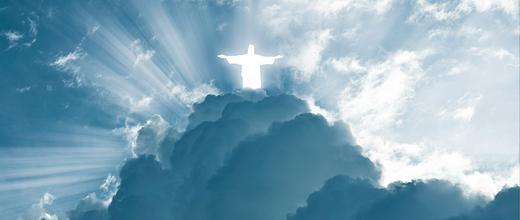In the exploration of Baha’i teachings, a thought-provoking distinction arises between the concept of a “Prophet of God” and “God Himself.” This seemingly paradoxical juxtaposition invites a closer examination of divinity and its manifestations within human experience. Central to Baha’i faith is the belief in the progressive revelation of God through successive Prophets. Each Prophet serves as a conduit for divine will, illustrating a unique aspect of the divine essence while remaining distinct in cultural and historical contexts. This intricate relationship between the Prophet and the Almighty offers profound insights into spirituality, ethics, and human civilization.
To comprehend the Baha’i perspective on this duality, one must first appreciate the significance of the term “Prophet.” In the Baha’i tradition, Prophets are not merely religious leaders but are viewed as manifestations of God. These figures, such as Jesus, Muhammad, and Baha’u’llah, embody divine attributes and articulate the teachings necessary for their respective epochs. They serve as the mirror through which humanity discerns the qualities of the divine, guiding followers toward a deeper understanding of spiritual truths. Thus, the Prophet becomes a bridge between the unknowable essence of God and the finite human experience, highlighting the inherent interdependence of divine and mortal realms.
Intriguingly, the Baha’i framework posits that no single Prophet completes the narrative of humanity’s relationship with the divine. Each one is a fragment of a larger mosaic, revealing facets of truth that complement one another over time. This progressive revelation underscores the continuous evolution of religious thought, accommodating the shifting paradigms of society while upholding eternal principles. The interspersing of Prophets across history can be likened to the phases of the moon—each phase illuminating different aspects of the same celestial body, yet all are indispensable to understanding the light’s full spectrum.
In this light, the Prophet emerges as a pivotal figure who not only embodies divine teachings but also exemplifies the characteristics intended for the advancement of humanity. The Baha’i teachings emphasize the moral and ethical instruction delivered by these divine emissaries. For instance, Baha’u’llah, the founder of the Baha’i Faith, imparted teachings that advocate for unity, justice, and the eradication of prejudice. These tenets reflect the intrinsic qualities of God and serve as essential principles for fostering a harmonious global society.
Moreover, the role of the Prophet extends beyond the mere transmission of doctrine; it also encompasses the cultivation of virtues within individuals. The teachings of Baha’u’llah urge followers to develop attributes such as love, compassion, and service to humanity. By embodying these characteristics, individuals participate in the divine purpose, anchoring their lives to the spiritual essence that the Prophet represents. This synthesis of divine will and human endeavor forms the cornerstone of a purposeful existence, wherein beings aspire to mirror the attributes of God as illuminated by the Prophet.
The metaphor of a guiding light serves as an apt illustration of the Prophet’s role. Just as a lighthouse alerts sailors to navigate treacherous waters, the Prophet’s teachings illuminate the path for humanity. This light, while emanating from God, necessitates human participation to channel it effectively in diverse cultural contexts. Such interactions create a dynamic interplay between the divine message and the cultural fabric of society, facilitating the evolution of understanding and practice in alignment with contemporary challenges.
However, the relationship between the Prophet and God transcends this illuminative function. It embodies the complexities of faith and reason, underscoring the notion that God interacts intimately with humanity through the agency of His Prophets. This intimate connection reflects the belief that God’s essence is not static but is continually revealed through human interpretation and experience. Therefore, the dialogue between the divine and the human realm enriches spiritual comprehension, leading to a deeper realization of God’s omnipresence and overarching plan for creation.
Yet, such heightened understanding does not come without its challenges. The perennial tension between faith and doubt often surfaces as adherents grapple with the implications of the Prophet’s role in a modern context. Skepticism about the nature of divine authority and the authenticity of Prophetic teachings can disrupt the spiritual journey of individuals. Consequently, it becomes essential for followers to engage with these complexities earnestly, recognizing that such struggles are intrinsic to spiritual growth.
In navigating this terrain, the Baha’i teachings provide an invaluable framework for reconciling faith with reason. They encourage inquiry and reflection, inviting individuals to consciously examine their beliefs while fostering a spirit of unity amidst diversity. This engagement with the Prophet’s teachings cultivates a deeper understanding of the divine essence—one that is not only theoretical but also profoundly experiential, urging followers to embody the principles of love and justice in their daily lives.
Ultimately, the relationship between the Prophet of God and God Himself in Baha’i thought reveals a compelling narrative that spans across time and culture. Each Prophet, as a manifestation of God, encapsulates a vital segment of divine intention, necessitating a nuanced appreciation of this interplay. In recognizing the Prophet’s pivotal role, individuals can access a broader understanding of spirituality that is both enriching and transformative. Through this discernment, adherents of the Baha’i Faith can aspire to embody the divine light, thus actively participating in the unfolding narrative of human spiritual evolution.
